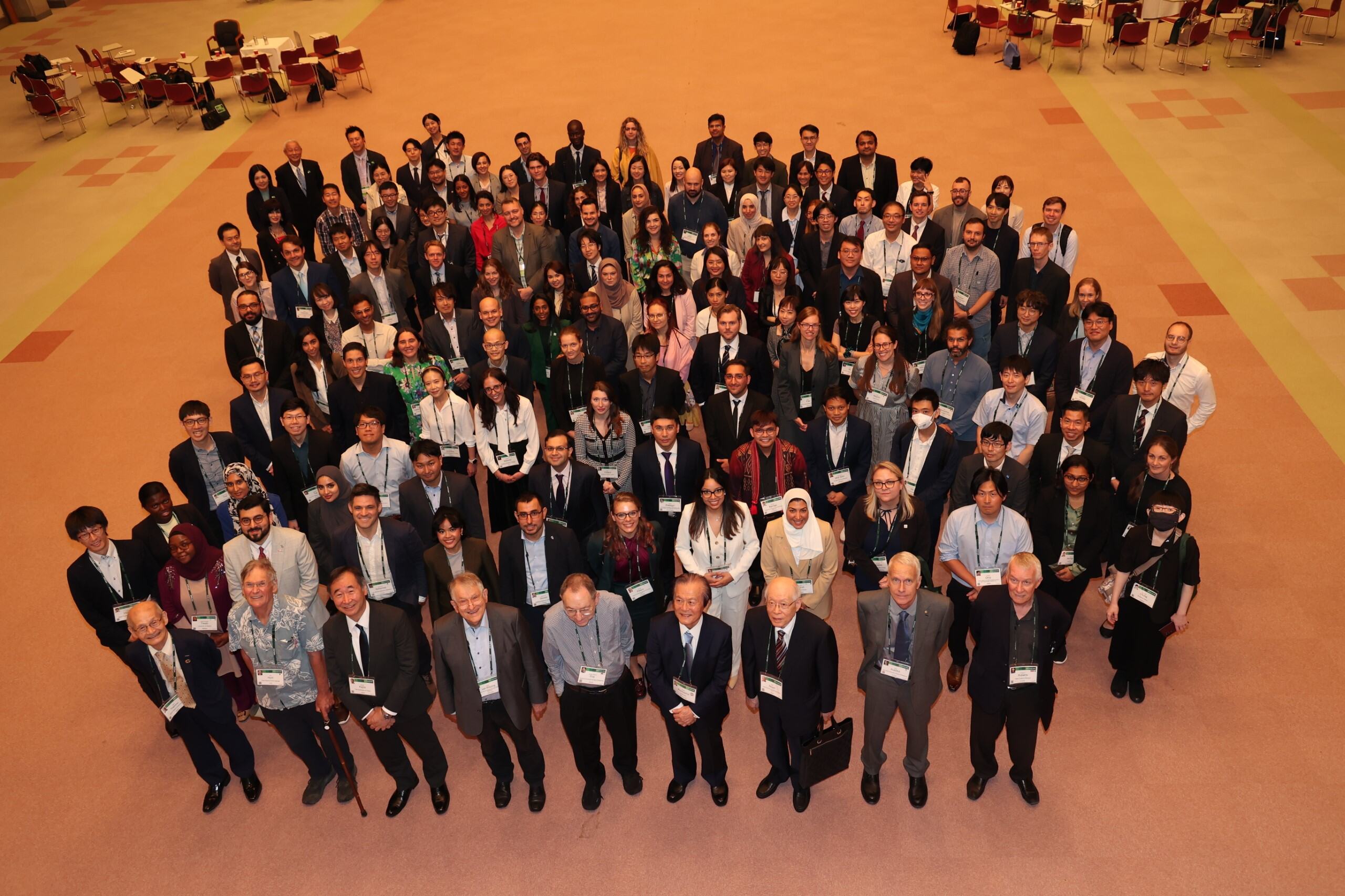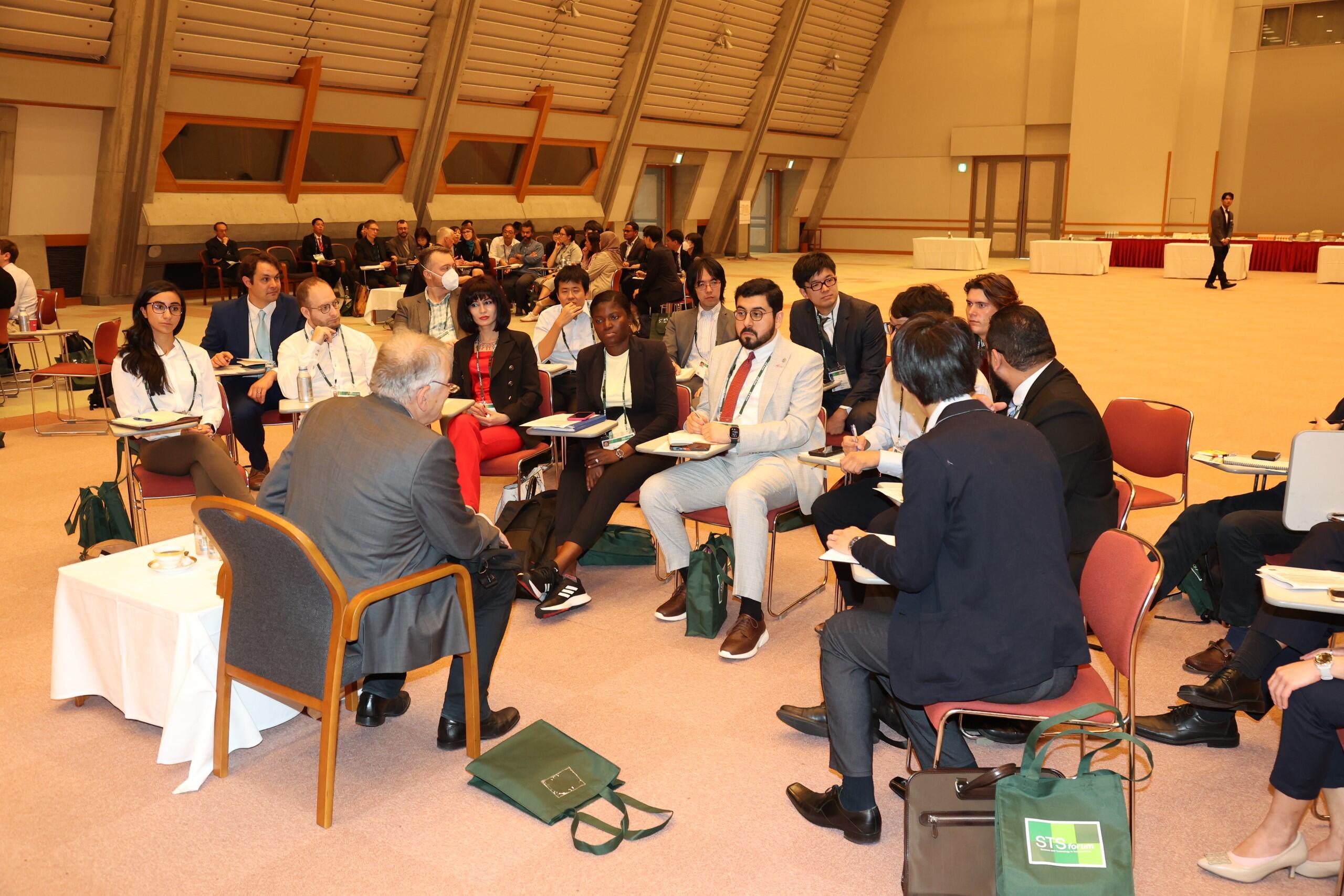Government of Japan sponsored three young science professionals to join STS Forum in Japan

ISTC sponsored three young science professionals’ attendance at the 21st Annual Meeting of the Science and Technology in Society Forum’s and Young Leaders Program in Kyoto, Japan from October 6 through 8, 2024. Maxat Zhabagin, Chairman of the Council of Young Scientists in Kazakhstan’s National Academy of Scientists and an advisor to the Academy’s president; Gulnara Anvarova, Specialist from the Avesto Group in Dushanbe, Tajikistan; and, Armen Sargsyan, Senior Scientific Researcher from Yerevan, Armenia participated in the Forum.
The STS Forum was founded as an annual conference in Kyoto in 2004 by former Japanese Finance Minister Koji Omi with the objective of bringing together global leaders from science, business, politics and academia. Now in its 20th year, the STS Forum has grown in size, quality and diversity to become the world’s premier platform for addressing both short-term and long-term science and technology challenges and opportunities and their implications for society. While science and technology contribute to civilization development, including longer, healthier lives, the world now faces the challenges of climate change and growing economic inequality. Scientific and technological research can be – as it has in the past – a source of solutions for humankind. The STS Forum and Young Leaders Program facilitates this research through both the national Forum and regional workshops it organizes and sponsors.
Networking at STS is one of its most impactful features. Professionals from different fields meet and discuss over multiple days how their professional cooperation contributes to humankind’s development. Some interaction is formal; some is informal. It’s all important in developing solutions to the scientific and policy challenges of the day.
The host city, Kyoto, is over 1,000 years old and, yet, is also an acknowledged modern center of cutting-edge science and technology in the 21st Century. STS Forum attendees represent their organizations in Kyoto; but, importantly, speak for themselves as concerned citizens of the world.
At the Forum, Mr. Zhabagin engaged in dialogue with 140 Young Leaders and Nobel laureates on how fundamental science benefits societal development, particularly in developing countries. There is an increasing policy focus on how scientists commercialize their research outcomes. Mr. Zhabagin reports that discussion also highlighted the importance of how sustained fundamental scientific research benefits society over many years. Mr. Zhabagin reports the STS Forum addressed artificial intelligence – both its transformative potential and its ethical challenges. Discussions emphasized the dual role of AI as a tool for advancing scientific progress and societal benefits, while also underscoring the risks of bias, privacy concerns and accountability issues associated with AI.
Ms. Anvarova dialogued with Nobel Laureates and participated in the Forum for Unity, Science, and Empowerment, or FUSE 2024. She engaged in discussions with women experts in science, technology, engineering and mathematics, or what is commonly referred to as STEM. Mr. Sargsyan participated in a variety of working groups at the Forum, including those addressing higher education and partnering in developing the green economy.
ISTC is honored to support young researchers at the STS Forum and Young Leaders Program. The pool of qualified Forum participants is deep in ISTC’s geographic footprint and we look forward to ongoing support of the STS Forum and Young Leaders Program in the future. The programs were sponsored by the Government of Japan with an administrative help of ISTC.
Photo credit: STS forum


